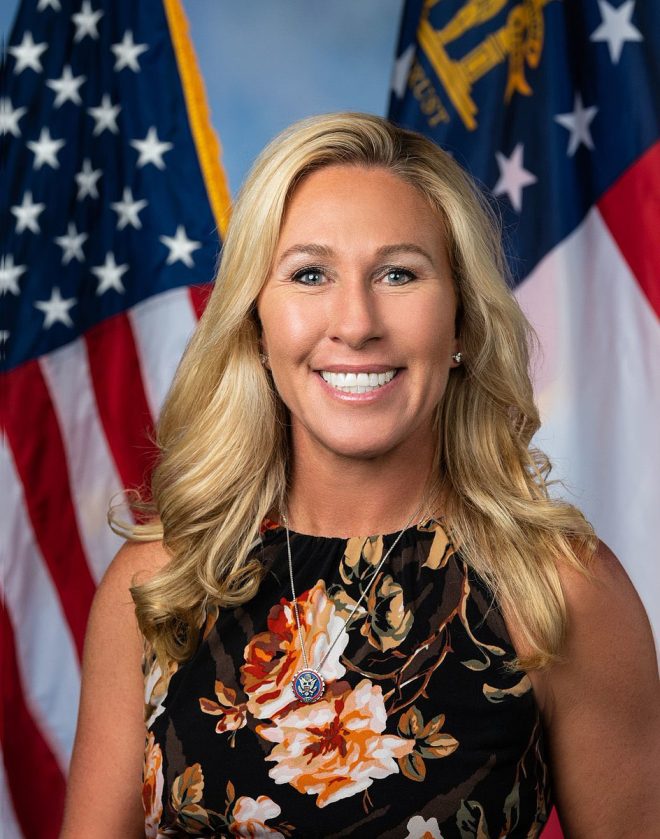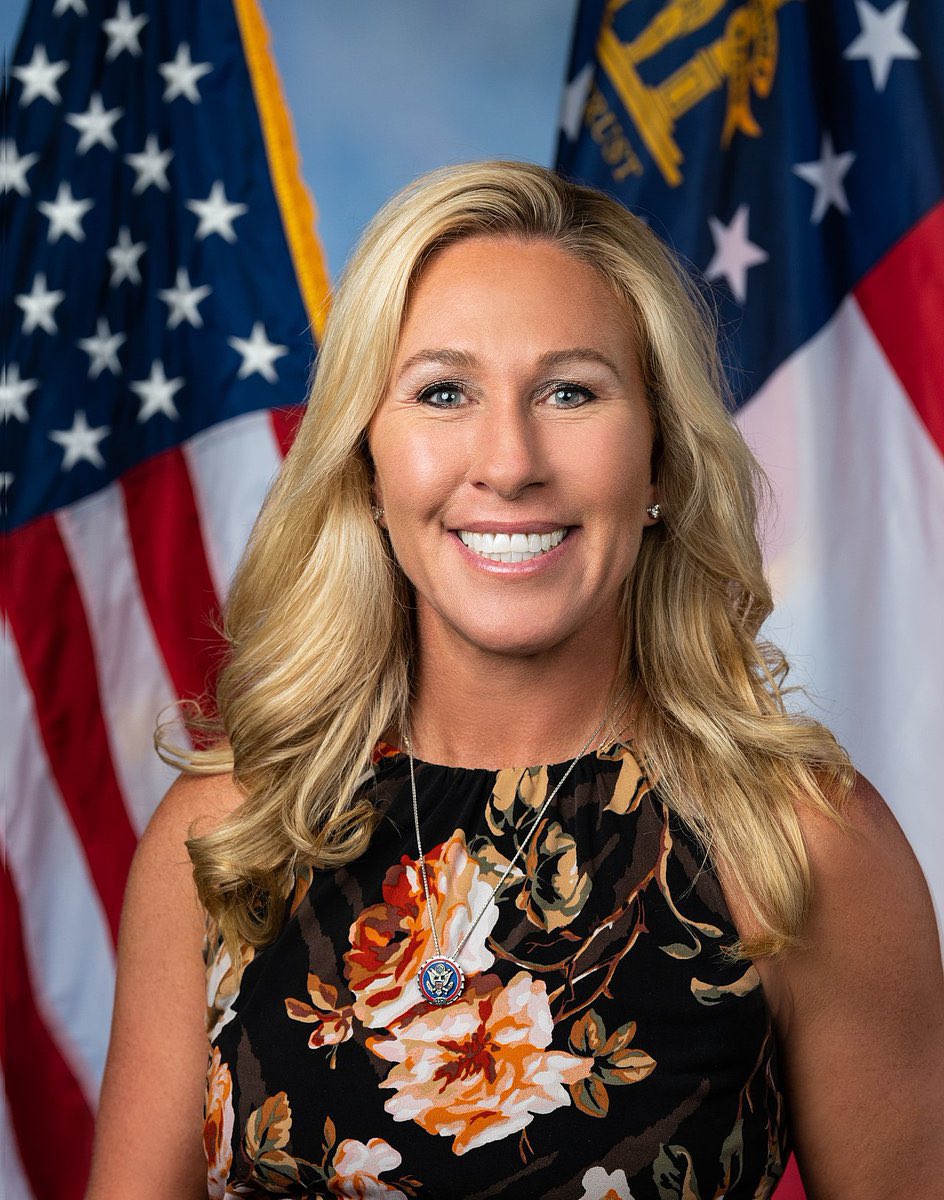
US Politicians and Stock Purchases: A Closer Look at Recent Allegations
In a shocking revelation, it has come to light that several US politicians, including republican Congresswoman Marjorie Taylor Greene, engaged in stock purchases of tariff-exempt companies just before a significant announcement regarding tariffs. These actions raise ethical questions and concern about potential insider trading, as these politicians took advantage of market fluctuations to secure investments in major companies like Apple ($AAPL), Amazon ($AMZN), Dell ($DELL), and Nike ($NKE).
Background on the Announcement
The announcement, which reportedly caught many investors off guard, involved changes in tariffs that could have significant implications for the tech industry and consumer goods. The timing of the purchases has led to speculation that these politicians may have had prior knowledge of the announcement, suggesting a potential breach of ethical conduct.
Details of the Stock Purchases
Marjorie Taylor Greene, among others, was noted for buying stocks in several high-profile companies just before the tariff news broke. This included a range of companies that are critical players in their respective markets. The purchases were made when the stock prices were low, taking advantage of the market’s reaction to the impending announcement. This kind of strategic buying has raised eyebrows among financial analysts and the general public alike, leading to calls for a thorough investigation.
The Implications of These Actions
The implications of such actions are far-reaching. If proven that these politicians acted on insider information, they could face severe legal repercussions. Insider trading is a serious offense in the United States, with strict laws governing the buying and selling of stocks based on non-public information. Moreover, these actions could undermine public trust in government officials and the political system as a whole.
- YOU MAY ALSO LIKE TO WATCH THIS TRENDING STORY ON YOUTUBE. Waverly Hills Hospital's Horror Story: The Most Haunted Room 502
Ethical Concerns and Public Trust
The ethical concerns surrounding these stock purchases are significant. Politicians are expected to act in the best interests of their constituents, not for personal financial gain. When elected officials engage in questionable financial practices, it erodes public trust and leads to skepticism regarding their motives and integrity. The fact that these politicians purchased stocks in companies that would benefit from tariff exemptions raises further questions about their commitment to serving the public interest.
Social Media and Public Reaction
The news broke on social media, with accounts like @unusual_whales bringing attention to the situation. The tweet detailing the stock purchases has gone viral, highlighting the public’s interest in the intersection of politics and finance. Social media platforms have become crucial in disseminating information quickly, allowing for widespread discussion and analysis of the situation. Many users have expressed outrage, calling for accountability and transparency from their elected officials.
The Role of Regulatory Bodies
In light of these allegations, regulatory bodies such as the Securities and Exchange Commission (SEC) may need to step in to investigate the transactions. The SEC is responsible for enforcing federal securities laws and ensuring that market participants adhere to ethical standards. If the evidence suggests that insider trading occurred, the SEC could pursue legal action against the individuals involved.
Moving Forward: Calls for Reform
This incident has reignited discussions about the need for reform in how politicians handle stock transactions. There are calls for stricter regulations and transparency in the financial dealings of elected officials. Proponents argue that implementing laws that prevent politicians from trading stocks while in office could help restore public trust and ensure that lawmakers prioritize the interests of their constituents over personal financial gain.
Conclusion
The recent revelations about US politicians engaging in stock purchases before a significant tariff announcement have raised serious ethical questions and concerns about insider trading. The actions of these officials, particularly Marjorie Taylor Greene, highlight the need for transparency and accountability in politics. As public outrage grows, it is essential for regulatory bodies to investigate these transactions thoroughly and consider reforms to prevent such conflicts of interest in the future. The intersection of politics and finance is complex, but ensuring that elected officials act ethically is crucial for maintaining public trust in democratic institutions.
By staying informed and advocating for transparency, citizens can help foster a political environment where integrity prevails, and elected officials are held accountable for their actions.

BREAKING: US Politicians were buying tariff exempt companies before the news like $AAPL Apple.
Take Republican Marjorie Taylor Greene. She bought $AAPL, $AMZN, $DELL, $NKE, and others before the surprise announcement today, buyjng the companies as they fell.
Unusual. pic.twitter.com/XHOdKjhNNB
— unusual_whales (@unusual_whales) April 12, 2025
BREAKING: US Politicians were buying tariff exempt companies before the news like $AAPL Apple
In a stunning turn of events, reports have surfaced indicating that U.S. politicians have been engaging in stock trades just before significant announcements regarding tariff exemptions. This raises eyebrows and questions about the ethics of such actions. Notably, Republican Marjorie Taylor Greene has been at the center of this controversy, having purchased shares in major companies like $AAPL (Apple), $AMZN (Amazon), $DELL (Dell), and $NKE (Nike) just before a surprise announcement that could impact these companies significantly.
Understanding the Implications of Tariff Exemptions
Tariff exemptions can dramatically affect stock prices, especially for companies heavily reliant on international markets and supply chains. When news breaks that certain companies are exempt from tariffs, investors often rush to buy shares, anticipating a surge in stock prices. This creates a fascinating yet concerning scenario when politicians, who have insider knowledge of such announcements, buy these stocks just before the news becomes public.
The implications of this practice are vast. It raises questions about whether these politicians are using their positions for personal gain. The timing of Greene’s investments suggests a strategic approach to capitalize on the expected rise in these companies’ stock prices post-announcement.
Marjorie Taylor Greene: A Case Study
Marjorie Taylor Greene is no stranger to controversy, and her recent trading activity has only added fuel to the fire. By purchasing shares in $AAPL, $AMZN, $DELL, and $NKE before the news broke, she has put herself in the spotlight. It’s essential to consider the ethical ramifications of her actions. Did she have access to information that the average investor did not? This scenario raises the question of transparency in political finance.
Furthermore, her investment decisions appear to have been timed perfectly, as these companies’ stocks were likely to fall before the announcement. By buying while prices were low, she positioned herself to benefit from the expected rebound. This kind of trading behavior is often seen as a conflict of interest, and it begs for a more robust regulatory framework around the trading activities of politicians.
Why is This Unusual?
It’s not every day that we see politicians engaging in stock trading that coincides with major announcements affecting the market. The unusual nature of this activity stems from the potential for insider trading, a highly controversial topic in the realm of finance and politics. While insider trading itself is illegal, the line can be blurred when it comes to politicians who have access to information that the general public does not.
In this case, Greene’s actions could be perceived as exploiting her position for financial gain. It’s uncommon for politicians to engage in such overt trading practices, especially when the stakes are this high. The public scrutiny following these revelations may lead to calls for stricter regulations to prevent such incidents in the future.
The Impact on Investors
For everyday investors, the implications of these actions can be profound. When politicians like Greene buy stocks in companies before favorable announcements, it can create an uneven playing field. Regular investors may feel at a disadvantage, as they lack access to the same information and resources that politicians do. This disparity can lead to distrust in the market and a belief that the system is rigged in favor of those with insider knowledge.
Moreover, this kind of behavior can discourage average investors from participating in the stock market. If individuals believe that their investments are susceptible to manipulation by those in power, they may choose to withdraw from the market altogether. This can lead to decreased market liquidity and overall lower participation rates, which can be detrimental to the economy.
The Role of Regulation
The need for comprehensive regulation surrounding the trading activities of politicians has never been more apparent. As these revelations come to light, there will likely be increased pressure on lawmakers to implement stricter rules to prevent conflicts of interest and insider trading. This could include measures such as mandatory disclosures of stock purchases and sales, as well as restrictions on trading during certain periods surrounding major announcements.
Regulation can help restore public trust in the financial system and ensure that all investors have a fair shot at the market. It’s crucial for lawmakers to recognize the potential consequences of their actions and work towards creating a more transparent trading environment.
Public Reaction and Media Coverage
The media coverage surrounding Greene’s investment activities has been extensive, highlighting not only her actions but also the broader implications for political finance. Many news outlets have questioned the ethics of her trading practices and the potential for corruption. Public opinion is likely to be divided, with some viewing her actions as savvy investing while others see them as a breach of trust.
Social media has played a significant role in amplifying these discussions. Platforms like Twitter have been buzzing with reactions, with many users expressing outrage over the perceived inequity in the system. The hashtag #InsiderTrading has gained traction, with individuals calling for accountability and change.
The Future of Political Trading
As this story continues to unfold, the future of political trading remains uncertain. Will there be significant changes to regulations surrounding the trading activities of politicians? Only time will tell. However, one thing is clear: the public is paying attention, and there is a growing demand for transparency and accountability in the political sphere.
For now, investors and the general public alike will be watching closely to see how this situation develops. The actions of politicians like Marjorie Taylor Greene could set a precedent for future trading behavior, and it’s crucial to ensure that the rules are fair for everyone involved.
Conclusion
In summary, the recent revelation regarding U.S. politicians buying tariff-exempt companies before significant announcements shines a light on the ethical dilemmas within political finance. With figures like Marjorie Taylor Greene at the forefront, the conversation around insider trading and transparency is more relevant than ever. As we move forward, it’s essential for lawmakers to consider the implications of their actions and work towards creating a fairer, more equitable system for all investors.
“`
Breaking News, Cause of death, Obituary, Today
